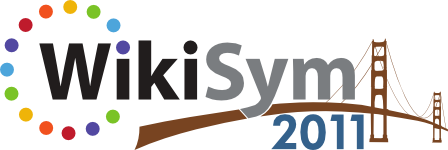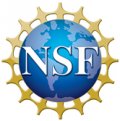News & Social Media
WikiSym posts updates to:
- @WikiSym on Twitter
If you tweet about WikiSym, please use the hashtag #wikisym.
Sponsors
Autonomous Link Spam Detection in Purely Collaborative Environments
Authors: Andrew G. West, Avantika Agrawal, Phillip Baker, Brittney Exline, and Insup Lee.
Abstract: Collaborative models (e.g., wikis) are an increasingly prevalent Web technology. However, the open-access that defines such systems can also be utilized for nefarious purposes. In particular, this paper examines the use of collaborative functionality to add inappropriate hyperlinks to destinations outside the host environment (i.e., link spam). The collaborative encyclopedia, Wikipedia, is the basis for our analysis. Recent research has exposed vulnerabilities inWikipedia’s link spam mitigation, finding that human editors are latent and dwindling in quantity. To this end, we propose and develop an autonomous classifier for link additions. Such a system presents unique challenges. For example, low barriers-to-entry invite a diversity of spam types, not just those with economic motivations. Moreover, issues can arise with howa link is presented (regardless of the destination). In this work, a spam corpus is extracted from over 235,000 link additions to EnglishWikipedia. From this, 40+ features are codified and analyzed. These indicators are computed using wiki metadata, landing site analysis, and external data sources. The resulting classifier attains 64% recall at 0.5% false-positives (ROC-AUC= 0.97). Such performance could enable egregious link additions to be blocked automatically with low false-positive rates, while prioritizing the remainder for human inspection. Finally, a live Wikipedia implementation of the technique has been developed.





